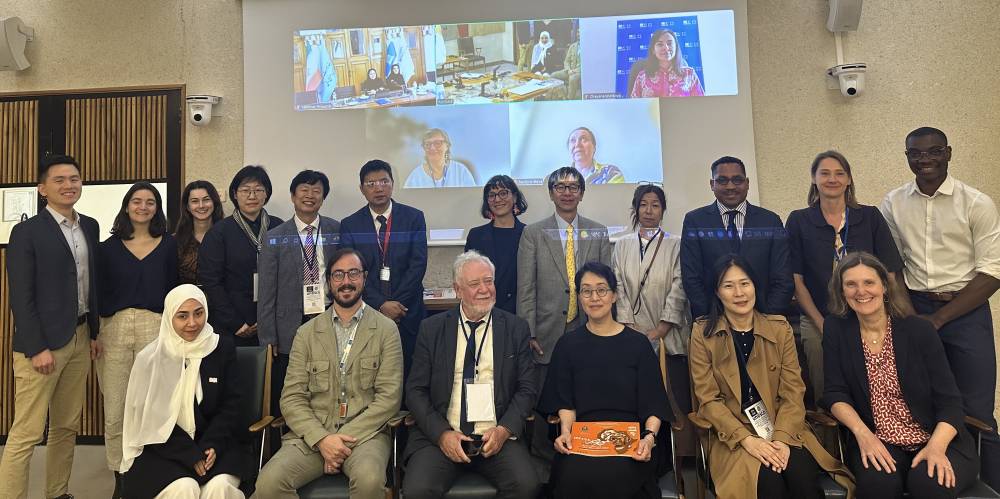The twelfth annual coordination meeting of the Category 2 centres active in the field of intangible cultural heritage took place on 13 June 2024 at UNESCO Headquarters, Paris.
The discussions at the twelfth meeting focused on two main topics: strengthening capacities to safeguard intangible cultural heritage and safeguarding intangible cultural heritage in the context of climate change. This followed the conclusions of the eleventh coordination meeting, which identified several areas of shared interest for collaboration with and among the centres, fully aligned with the priorities of UNESCO’s programme and budget, and formed the central of this twelfth coordination meeting.
The centres shared valuable insights, experiences, and projects in this area, including the collection of case studies, research, capacity development, and awareness raising. Some of these activities are carried out jointly by several centres and with UNESCO. Through these initiatives, the centres actively contribute to the ongoing reflection on the risks posed to the viability of intangible cultural heritage in the context of climate emergencies and the roles for intangible cultural heritage in climate adaptation and mitigation.
Discussions also highlighted the pivotal role that Category 2 centres play in supporting capacity building for effective safeguarding of the intangible cultural heritage, which is the first funding priority of the 2003 Convention. In recent years, they have notably supported workshops for the implementation of the reformed Periodic Reporting exercise, as well as the training of new facilitators in each region.
Building on the experience gained during the COVID-19 pandemic, and in response to evolving needs, the centres have embarked on various digital learning and networking initiatives. The meeting explored concrete collaborations between the centres and with UNESCO for the future development of multimodal capacity-building strategies, including through learning platforms.
Learn more about the Category 2 CentresEvent:
-
Twelfth annual coordination meeting of category 2 centres active in the field of intangible cultural heritage (13 June 2024 – 13 June 2024)
